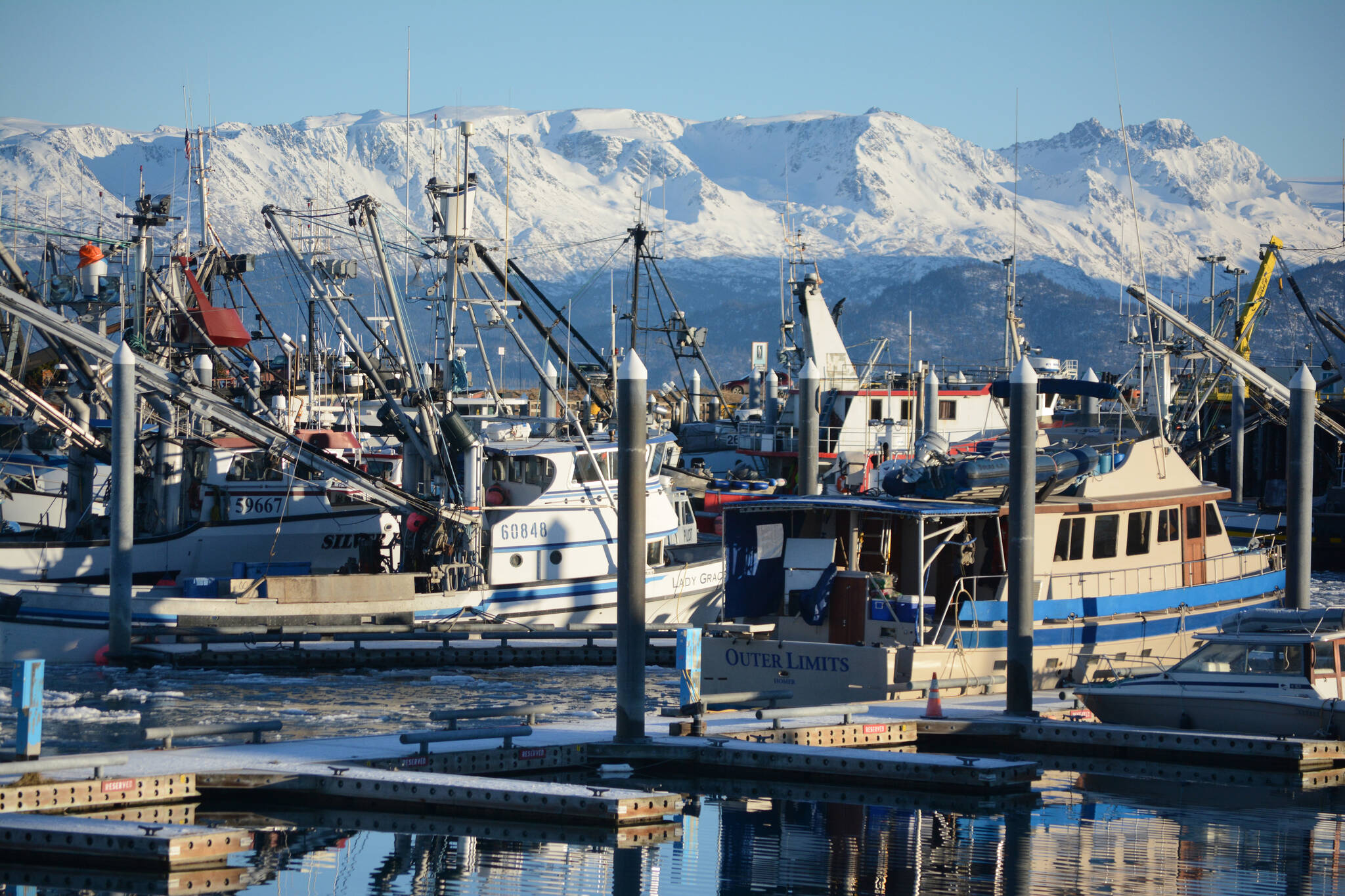An ongoing lawsuit by a Washington State environmental group is threatening to shut down the Southeast Alaska salmon troll fishery in the summer and winter to help endangered Puget Sound orca whales, and has prompted the trollers to ask the City of Sitka to help pony up for legal bills.
The Seattle-based group Wild Fish Conservancy filed suit last year and a federal court ruled last August that the National Marine Fisheries Service had violated the Endangered Species Act and the National Environmental Policy Act in approving salmon harvests in the Southeast troll fishery, which catches chinook salmon, a key food source for the Puget Sound orcas.
Chinook salmon in Puget Sound are themselves endangered, further complicating the issue.
Some of the salmon caught in the troll fishery originate in streams from as far south as the Columbia River, and a very small number come from Puget Sound. There are also fish from other Washington rivers, as well as some from Idaho, and numerous Canadian and Alaska rivers that produce the fish. The fishery is regulated under a U.S./Canadian treaty, and that treaty was re-upped in 2019 for 10 years, and takes into account all U.S. and Canadian fish.
The Conservancy argues that 97% of the fish caught in Alaska don’t originate here, and although ADF&G, which manages the Alaska fishery, doesn’t have exact numbers, they say it is vastly different, and that only 2% of the fish caught in Southeast Alaska originate in Puget Sound.
On Aug. 8, 2022, U.S. District Court Judge Richard Jones ordered that an “appropriate remedy” be found, and while that could possibly mean limits on commercial trolling for chinook in Southeast, it will more likely result in a rewrite of the biological opinion about what is causing the problems plaguing the Puget Sound orcas.
Some problems pointed out by the Southeast Alaska Trollers Association include rapid urbanization in the Puget Sound area, industrial pollutants in the water, large-scale whale watching, hydroelectric projects, and a popular sport fishery for immature chinook that they say are misleadingly labeled “black mouths.”
In the meantime, lawsuits and rulings are continuing. On Dec. 13, the Magistrate for the U.S. Western Washington District Court released a Report and Recommendation with a proposed order that includes temporarily vacating the Incidental Take Permit (ITS) that allows Southeast Alaska’s troll fishery to harvest wild chinook salmon year-round. The National Marine Fisheries Service is currently working to revise the Biological Opinion, including the ITS.
On Jan. 10, both sides filed their objections, with the Wild Fish Conservancy saying that the analysis governing the Columbia River in Washington prey increase programs (fishery enhancement) was flawed under federal law and that the ITS covering the Southeast troll fishery was also legally deficient.
The Alaska Trollers Association argued that the proposed remedy would have devastating effects on Southeast Alaska and would result in no appreciable benefit to the Puget Sound orcas. Amy Daugherty, director of ATA, told KINY Radio in Juneau, “it’s incomprehensible that the Wildfish Conservancy is looking a thousand miles up the coast to place the blame on the Southeast trolling fishery when there are many other fisheries between Washington and Southeast marine waters.
“Our allocation through treaty has diminished over 50 percent in the last three treaties that we signed with Washington, Oregon and Canada,” she said.
While all the lawsuits are flying, lawyers have to get paid, and ATA has asked the Sitka Assembly to consider contributing $25,000 to the cause.
Sitka fisherman Matt Donohoe, president of ATA, told the Assembly on Jan. 10, “Anyone claiming that Southern Resident killer whales are starving because Alaska trollers were taking food from the mouths of their babies would be laughed out of court. That’s what we thought. Yet a judge is recommending that the historic Southeast Alaska troll fishery, which for 100 years has never closed, will shut down this winter. If that happens, the industry will die, and so will a large part of Southeast Alaska’s economy.”
The Assembly didn’t vote on the measure, but acknowledged the economic devastation that would come from a fishery shutdown, and discussion ranged from upping the amount to possibly asking other Southeast communities to pitch in.
However, Mayor Steven Eisenbeisz said he was surprised at how much pushback to the idea that Assembly members had been getting from the community at large on the proposal. The Assembly is due to vote on it this week.
Cristy Fry can be reached at realist468@gmail.com.



